Hello! This is a new correspondent, Hanes.![]()
The other day, I mentioned the morning activities that can be done in Chuo-ku.
Many people working in Chuo-ku say, "I'm fluttering in the morning, but I can get time at night!"
And for those who come to Tokyo for sightseeing, even after the cultural facilities are closed.
"I want to have a special experience unique to Chuo-ku!" Isn't there a lot of people who say, "I want to enjoy it at night!"
This time, we call it the first series of [Chuo-ku Night Activity Series].
We will introduce limited-time![]() night activity information that can be done at Tsukiji for about one month from now on.
night activity information that can be done at Tsukiji for about one month from now on.
What is that night activity?...This is a tour of the standing practice of Nihonbashi Opera "Iris".![]()
When it comes to opera, there is an image of a high threshold, but please be assured!
This practice is open to the public for free.![]()
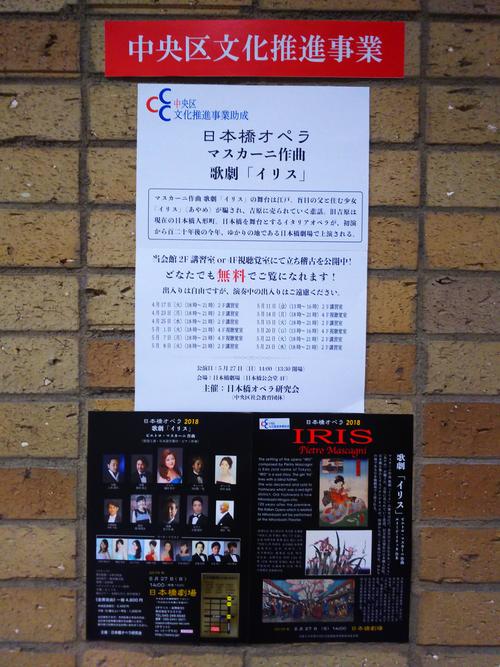
Open the door of the training room on the second floor of the Tsukiji Social Education Center, Chuo-ku, which is a rehearsal hall while pounding....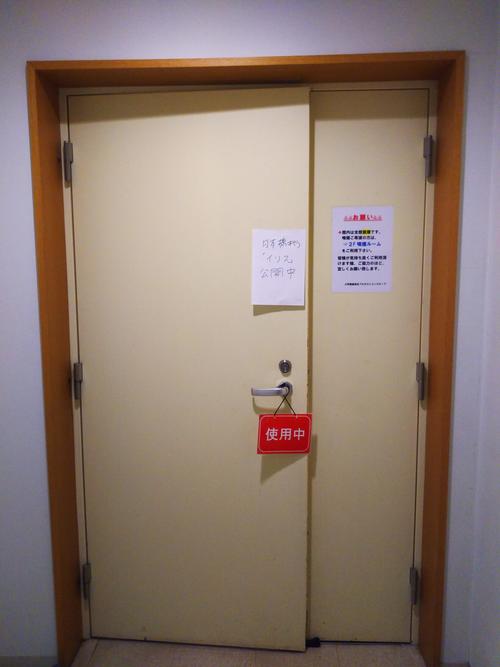
The members of Nihonbashi Opera were checking the swing.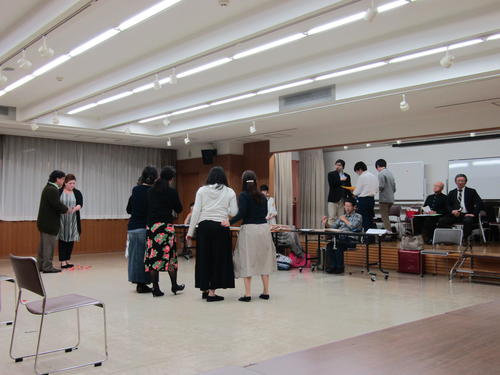
According to the commentary I received during the tour, the opera was performed.
①Music practice
②Standing training (directors give detailed explanations and guidance on how to move to each cast)
③Through training
It seems that there are three stages.
Even those who usually go to operas, plays, and concerts don't have much opportunity to see such a practice scene?
In the standing practice released this time, you can see the process of creating the work.
The thoughts and intentions contained in the movement, as well as the attention to the colors and materials of clothes and accessories.
You can learn through instruction from the director to the actor.![]()
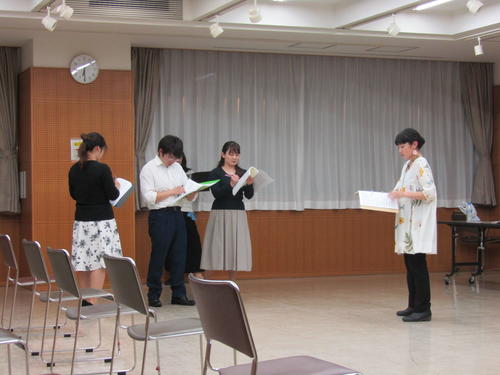
It seems that there are some improvements that can be seen only by standing training.
You can realize that opera is not a script-like one, but a "creature" whose expression differs depending on the person and place of the performer.
Also, by looking at such a place, you should be able to enjoy more happily in the actual performance, saying, "That gesture at the time of standing training was finished like this."![]()
And not only in the actual performance, but also in practice, the sound of the piano is wonderful.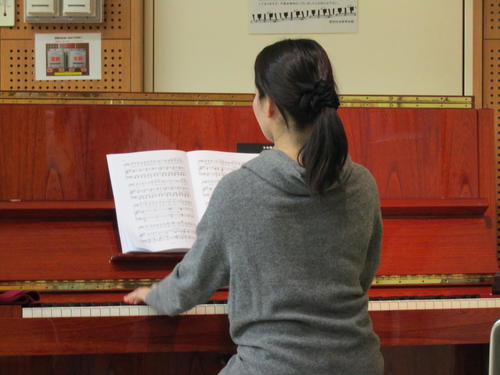
You can listen to the singing voice.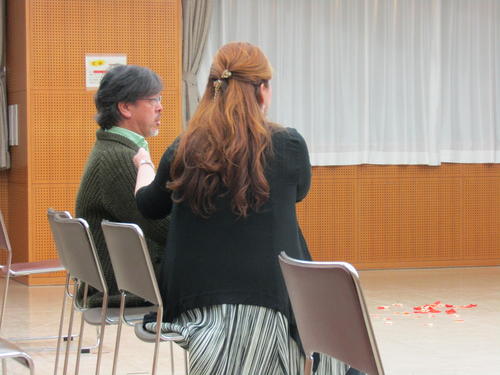
There was also a conductor, singing the relevant part instead of the actor who was absent from the practice.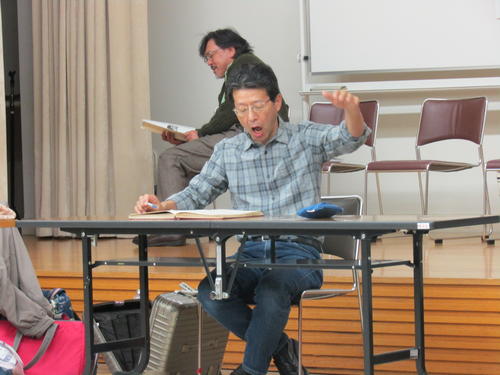
This year's performance of Nihonbashi Opera, which is being created through such practice, is a performance of this year.
The opera "Iris" composed by Pietro Mascarni (Iris) = Ayame)
It is not as well known as Puccini's "Mrs. Chocho" set in Nagasaki.
Similarly, it was influenced by japonism, which became popular in Western Europe at the end of the 19th century.
The big difference from "Mrs. Chocho" is that it uses Japanese melody, while it uses Japanese melody.
"Iris" is all Italian melodies.
However, Japanese characters such as Osaka, Kyoto, Fujiyama, Seki Shimono, Musume, and Gaisha appear in the characters and lyrics.
Isn't that also the point you want to keep in mind during the theater?![]()
The stage of this work is Edo, where Iris, a girl living with a blind father, is deceived and sold to Yoshiwara.
It's just 120 years since it premiered in Rome.
Former Yoshihara may be located in Nihonbashi Ningyocho today, and the performance will be decided at Nihonbashi, a land related to it.![]()
This is an opera that I would like to appreciate in Chuo-ku in this memorable year.![]()
![]()
Advance reservations are not required for standing lessons!
You can feel free to drop in.
Please refer to the Nihonbashi Opera website below for the date and time of public release.
http://www.music-tel.com/wargner/
Most recently, it is scheduled to be released at Tsukiji Social Education Center from 18:00 to 20:00 on April 23 (Mon), 25 (Wed), and May 1 (Tuesday).
It's a practice, but I forget the tiredness of work and look at it unintentionally.
It will be a night activity with a sense of fulfillment and satisfaction.![]()
Whether you are a fan of opera or a beginner of opera, why not take this opportunity to experience the charm of opera set in Japan?
[Details of actual production]
Nihonbashi Opera 2018 Opera "Iris" (composed by Pietro Mascarni)
Location: Nihonbashi Theater (4th floor of Nihonbashi Public Hall, Chuo-ku, 1-31-1 Nihonbashi Kakigaracho)
Date and time: May 27, 2018 (Sun) 14:00 (Open 13:30)
Ticket information: e+ (eplus) http://eplus.jp/
All seats are free for general 4,800 yen
Central inhabitant discount 2,400 yen, children (6 years old and over)-student 1,000 yen
There is a ticket on the day. Central residents and students must present their ID card.
Chuo-ku Tourism Association Official Blog
Chuo-ku Tourism Association correspondent blog
Introducing Chuo-ku's seasonal information by sightseeing volunteer members who passed the Chuo-ku Tourism Association's Chuo-ku Tourism Certification and registered as correspondents.
List of AuthorsRecent blog post
|
[Night activity at Tsukiji] Standing practice of Nihonbashi Opera "Iris"
|
MenuArchiveLinks |

